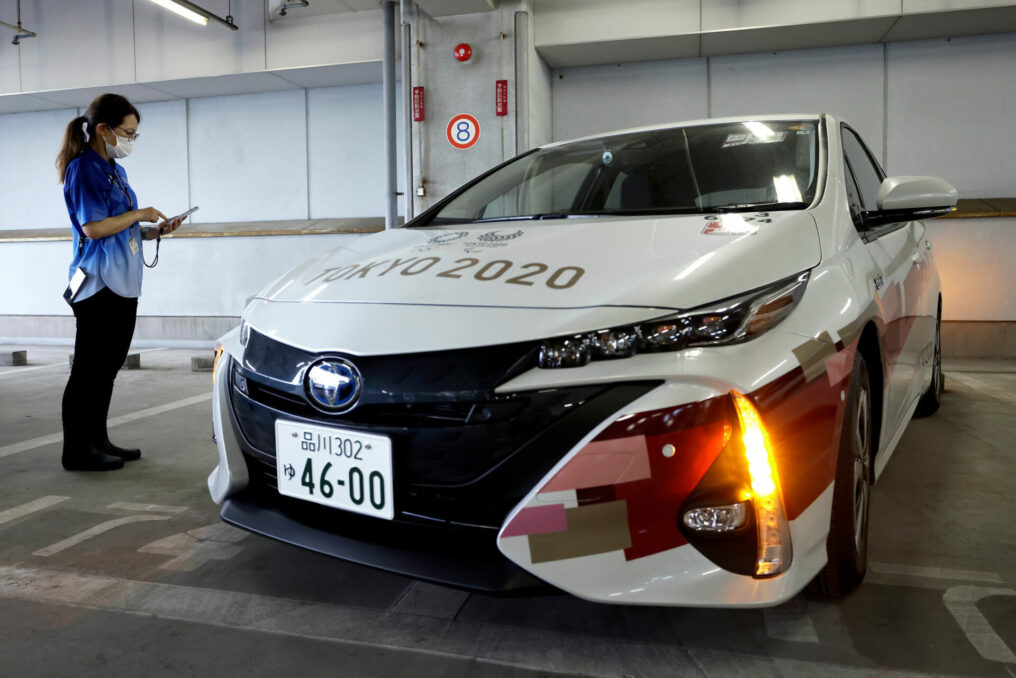Japan’s Toyota’s announcement regarding its plans for an all-solid-state battery and its commitment to advancing electric vehicles represents a significant step forward in the fight against climate change. Toyota aims to address one of the main concerns associated with electric vehicles and enhance their viability for consumers.
Toyota has announced its plans to develop an all-solid-state battery as part of its ambitious strategy to advance electric vehicles (EVs) and combat climate change. The Japanese automaker aims to introduce a commercial version of the solid-state battery by 2027, to significantly reduce charging time to just 10 minutes or less.
With the ever-increasing demand for EVs, Toyota intends to expand its battery EV lineup and invest in technological advancements to achieve its target of delivering 1.5 million electric vehicles by 2026. The company envisions the next generation of battery EVs to offer customizable driving experiences, focusing on acceleration, turning, and stopping capabilities.
Toyota’s emphasis on hybrid vehicles in the past has been due to the convenience of recharging them while driving, thanks to their combination of a gasoline engine and an electric motor. However, the proliferation of home charging stations for EVs has made them a more viable option for consumers.
Recognizing its need to catch up in the EV sector, Toyota’s President, Koji Sato, has acknowledged the company’s lag behind its competitors. This acknowledgement comes ahead of a shareholders’ meeting, where Toyota is likely to face criticism regarding its efforts to address climate change.
In addition to the all-solid-state battery, Toyota has expressed its commitment to advancing lithium-ion batteries, the prevailing battery technology used in most EVs, to offer more affordable options. Furthermore, Toyota remains dedicated to promoting a “hydrogen society” and continues to work on developing hydrogen-powered models, including fuel cell vehicles.
While hydrogen production is currently expensive and reliant on fossil fuels, Toyota aims to collaborate with partners to produce cleaner and more cost-effective hydrogen using renewable energy sources.
Alongside its efforts in EVs and hydrogen-powered vehicles, Toyota is also exploring second-generation biofuels. Biofuels, such as ethanol, are considered more renewable than fossil fuels, although they do have certain limitations that need to be addressed.
As one of the world’s leading automakers, Toyota’s commitment to addressing climate change is becoming increasingly evident. By focusing on the development of all-solid-state batteries, advancing lithium-ion battery technology, exploring hydrogen-powered vehicles, and researching second-generation biofuels, Toyota is striving to offer a diverse range of sustainable transportation options that can contribute to reducing greenhouse gas emissions and mitigating the effects of climate change.
Japan’s Toyota’s Ambitious Step for a Sustainable Future
By targeting a commercial solid-state battery by 2027 with a reduced charging time of 10 minutes or less, Recognizing the need to catch up in the EV sector, Toyota’s determination to expand its battery EV lineup and develop cutting-edge technology demonstrates its commitment to remaining competitive in the rapidly evolving automotive industry.
Furthermore, the company’s focus on customization of the driving experience indicates its dedication to meeting consumer demands and providing a personalized and enjoyable journey.

Toyota’s efforts extend beyond EVs, as it continues to explore the potential of hydrogen-powered vehicles and work towards a “hydrogen society.” Collaborating with various partners to produce cleaner and more affordable hydrogen using renewable energy sources showcases the company’s commitment to sustainable transportation alternatives.
Moreover, Toyota’s research into second-generation biofuels highlights its comprehensive approach to addressing climate change. By investigating more renewable fuel options such as ethanol, the company aims to reduce dependence on fossil fuels and contribute to a greener and more sustainable future.
As one of the world’s leading automakers, Toyota’s commitment to innovation and sustainability is evident in its multifaceted approach to tackling climate change. By investing in all-solid-state batteries, advancing lithium-ion battery technology, exploring hydrogen-powered vehicles, and researching biofuels, Toyota is playing a crucial role in promoting a more environmentally friendly transportation landscape.
With its ambitious goals and dedication to technological advancements, Toyota is poised to make a significant impact on the future of the automotive industry and the global fight against climate change. By offering a diverse range of sustainable transportation options, Toyota is helping to pave the way for a cleaner, greener, and more sustainable future.













